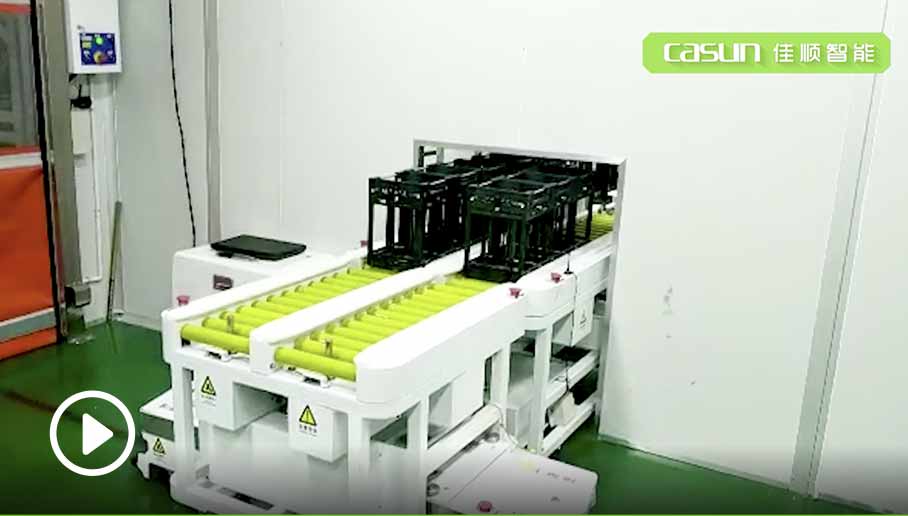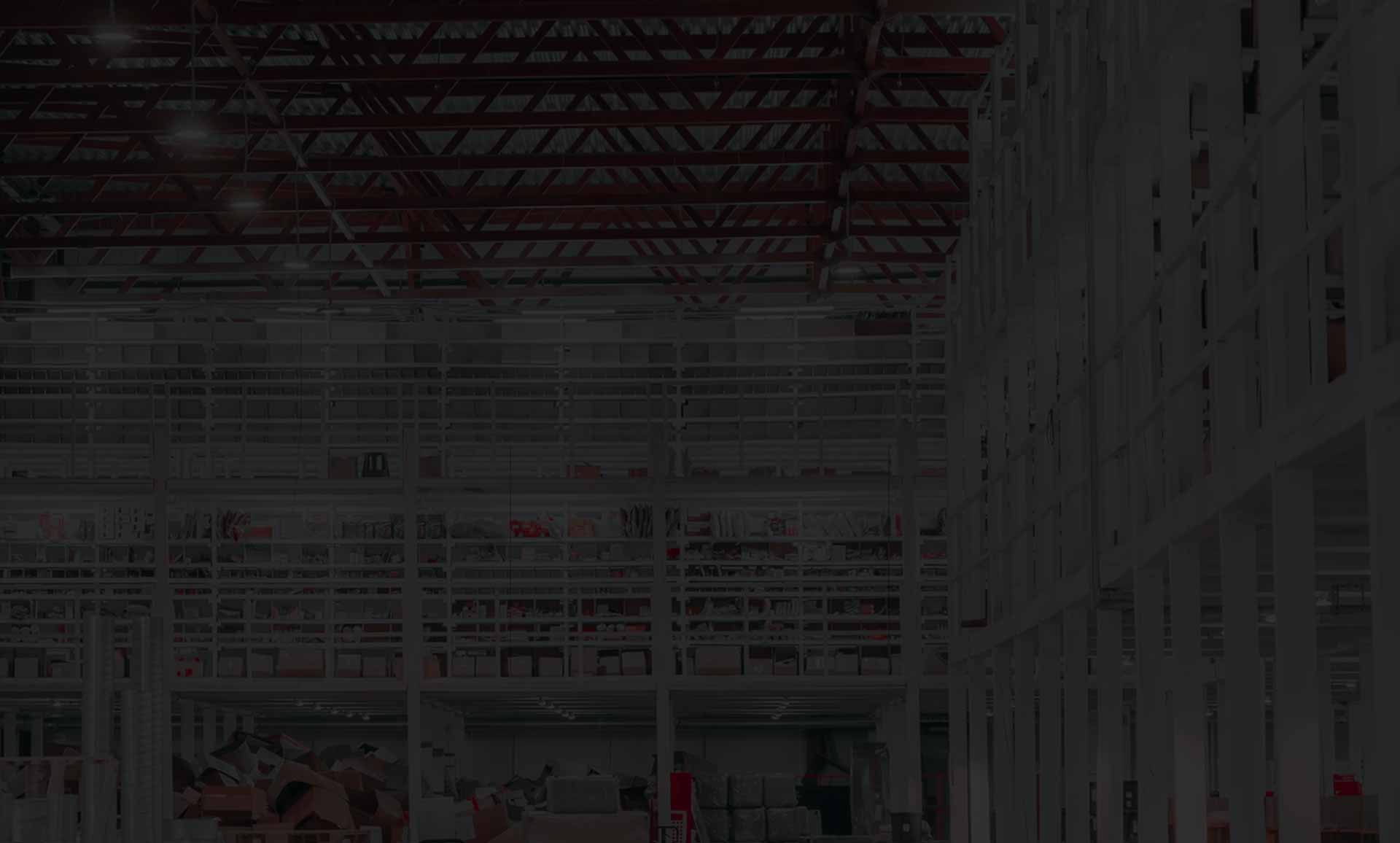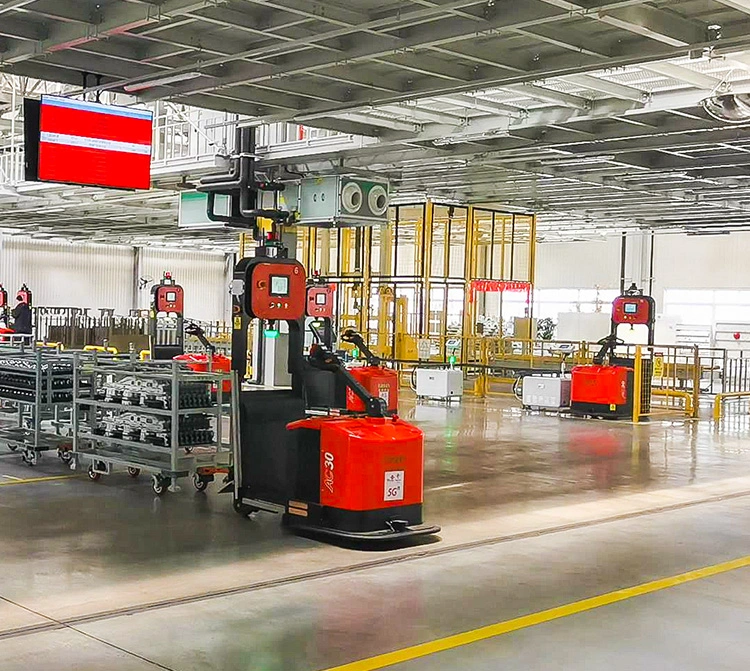 Focus on AGV industry for 18 years
Focus on AGV industry for 18 years
 Focus on AGV industry for 18 years
Focus on AGV industry for 18 years
The project aims to build the first smart factory in the city and the first batch in the province to complete 5G full coverage, ensure integrated management inside and outside the factory, change the traditional operation mode that requires a lot of manpower, solve the problems of chaotic material management, unstable production efficiency, low production yield, high management cost, etc., and realize intelligent manufacturing and flexible personalized production.
The smart logistics products used are mainly used for the transportation and loading and unloading of materials in the welding workshop. The manually assembled material racks are distributed from the outdoor to the indoor distribution area according to the manual material sorting requirements. From the indoor distribution area, the materials are automatically delivered to the production line according to the material demand of the production line; and the long-distance smart distribution of materials between the four production workshops of stamping, welding, painting and assembly is realized.

The process flow involves both internal and external factories, with complex and distant routes, and a large number of material carts. It requires automatic uncoupling and coupling of carts. Real-time inventory management of line-side materials is needed to ensure demand-based distribution. High system cluster scheduling capabilities are also required.
There is a large volume of buffered materials between processes. Traditional operations are time-consuming and labor-intensive, with delayed data. Automation of multi-cart material distribution is required to efficiently complete material handling tasks and ensure smooth data connectivity.
The system must meet extremely high latency requirements; it must also ensure high confidentiality of data, with critical production data remaining secure. Local high computing power is necessary, as well as interconnecting data centers to enable efficient data center operations, creating a secure and efficient data foundation.

The project uses dozens of SLAM navigation latent traction AGV, automatic charging stations, CRMS systems, 5G private networks, and more.
Gigabit wireless broadband, millisecond-level ultra-low latency, and ultra-high-density connectivity provide a solid foundation for future smart manufacturing, flexible manufacturing, remote control, and other applications in the factory.
The mobile robot intelligent control system interfaces with the customer’s MES system, line-side equipment, line systems, and rolling doors, enabling data sharing and integration. This allows for intelligent planning of the robots' optimal transport routes, improving warehouse entry/exit efficiency, boosting production efficiency, and reducing costs.
The mobile robots, based on scheduling information, safely and efficiently complete the transfer of multiple material carts between different processes.


With the support of 5G technology, the mobile robots can be remotely controlled in real-time. Additionally, the massive data generated by the robots can efficiently interact with the data center in real-time.

The mobile robots not only help the factory complete material handling efficiently, accurately, and flexibly, but also enable integrated management both inside and outside the factory, facilitating smart manufacturing improvements and digital upgrades.

The material storage information, inbound and outbound tasks, and on-site equipment are all centrally managed by the customer’s MES system, enabling real-time monitoring of material status inside and outside the factory.
